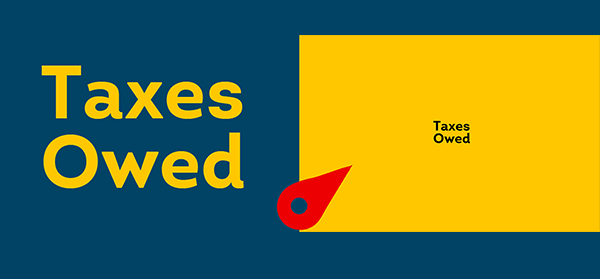Summary:
With more Americans living with multiple roommates, it’s imperative that landlords know how to screen when multiple rental applicants plan to live in the same unit. Help protect yourself when you have multiple tenants by thoroughly screening each tenant, including terms for maximum guest stay in your lease, applying the same criteria to everyone, and keeping excellent records.
Disclosure: This content, except as otherwise indicated or stated on this site, is the property of TransUnion Rental Screening Solutions, Inc. This content is for educational purposes and for convenience only. Trademarks used are the property of their respective owners, and no endorsement or affiliation is implied. The information presented in this content is “as is” without warranties of any kind, and specifically is not represented to be complete and does not constitute legal advice, and is subject to change without notice. You are encouraged to check these terms from time to time for changes, and by accessing this site you agree to these terms and all terms listed. Laws and regulations may vary by state and locality. Consult your own counsel if you have legal questions related to your rental property practices and processes.
Disclaimer: Remember that this material is intended to provide you with helpful information and is not to be relied upon to make decisions, nor is this material intended to be or construed as legal advice. You are encouraged to consult your legal counsel for advice on your specific business operations and responsibilities under applicable law. Trademarks used in this material are the property of their respective owners and no affiliation or endorsement is implied.
Cupcakes are great by the dozen. But as many tenants in your two-bedroom walk-up Not so much. According to NPR, the cost of rent is rising 30-40% in America’s most popular rental markets. Naturally, this change means more tenants are seeking to share the cost of housing with partners, friends, family members, and other roommates. However, if you’re not careful, this new trend could leave unprepared landlords with a bitter taste in their mouths.
Having multiple tenants apply to live together in the same space presents new challenges for independent landlords. There’s increased wear and tear, potentially more guests coming in and out of your unit, and a higher chance of additional noise, to name a few.
However, before even signing a lease and letting multiple people into your unit, there’s the biggest challenge of all: screening all tenants sufficiently.

It’s absolutely essential to vet every single person who will be living in your unit with a reputable service like SmartMove®.
Multiple states have precedents and laws concerning Squatters Rights. You could have an extremely difficult time evicting people who are living in your property but are not on the rental agreement.
To help prevent the worst, it’s essential to have a screening process that works for multiple tenants and helps weed out potentially wrong tenants.
Read on to check out six helpful tips for screening multiple tenants for your unit, including:
1: State Your Intent to Screen In Your Rental Application
Make it clear from the get go that you’re going to screen any adult that will be living in the unit––and that your leasing decision might depend on the results of a background report.
Many landlords build consent for credit checks and other background screening directly into their rental applications to streamline the process. These screening clauses usually explain:
- Under what circumstances screening will occur
- How the information will be used, and
- What happens if a tenant is denied based on a background check.
Sometimes these are line items that rental applicants must initial as proof of acknowledgement before turning in the paperwork.
According to Law Insider, sample language in rental documents might look something like the following.
- Sample Tenant Screening Clause 1*: All potential tenants will be required to submit a rental application including proof of income and, subject to applicable law, will be subject to credit and criminal checks as well as employment and income verification.
- Sample Tenant Screening Clause 2*: Each Prospective Tenant over the age of 18 is subject to a background screening and reference verification including, but not limited to, credit check, criminal history check, employment and income verification, reference verification, bank account verification, and rental history verification. Landlords will use this report in connection with the Prospective Tenant’s application.
* DISCLAIMER: this information is provided for information purposes only and should not be construed as legal advise. Please consult your legal counsel with any questions about your rental agreement language or any other rental-related queries and how they may impact you.
Informing potential tenants about your expectations ahead of time can let them know that you mean business––and are serious about finding high quality tenants.
Pro Tip:
In addition to including screening clauses in your rental application, set yourself up for success by learning all the right questions to ask on a rental application

2: Include Lease Terms for Maximum Lengths of Stay for Guests
Unauthorized tenants––people living on your property without your permission or without an agreement––are one of many common rental scams. Usually, someone with a better financial track record goes through the screening and leasing process.
Then, once the keys are turned over, they bring someone else to live on the property. This could be a romantic partner, family member, or friend whose past record may not be so shiny.
Unless you have explicit language that can help protect you from this scenario in your lease, you could be on the hook for an extremely difficult and potentially damaging scenario. Include terms for occupancy, short-term stays, and guests in your rental agreement. You might also consider including advanced warnings in your rental application, too.
However, NOLO warns to verify that your occupancy clauses don't unintentionally discriminate against people with families. Always consult legal counsel to help comply with the local laws in your area.
Without carefully worded terms, you may end up with permanent “house guests.” These people could be un-vetted by you and, in the absence of a signed lease agreement, may incur little responsibility for damages they may cause.
Pro Tip:
In addition to long term rentals,make sure to watch out for unauthorized guests when managing short-term or vacation rentals, as well.
3: Check the Background of Each Tenant, Not Just the Main Contact
Even if multiple people want to live in your unit, there’s usually a main point of contact or a single person that you talk with the most. This self-appointed “Head of the Roommates” is usually one of the group’s more responsible members.
Your main contact may seem perfectly normal and responsive. However, assuming their co-tenants are similar could be a wildly dangerous game.
A tenant with a worrying history may attempt to hide behind the glowing halo of their friend or partner. Help protect yourself from the worst by screening every adult who will live in your unit.
Consider each rental applicant as an individual and potentially look into the following:
Financial Screening
Before you sign a lease agreement, make sure tenant(s) can afford the rent. Are they consistently employed? Do they have a bottomless trust fund?
You need to figure out how they’ll manage to pay you. Here’s how:
- Ask for financial documentation, such as pay stubs, tax returns, and financial statements, then learn how to verify a prospective tenant’s income.
- Verify employment. Don’t just take a rental applicant at their word. Get proof. Contact their employer through to confirm the information provided on the application is correct.
- Use Income Insights. A proprietary calculation created by SmartMove, Income Insights compares your rental applicant’s credit activity to their self-reported income and suggests if you should ask for additional income verification. Backed by TransUnion––a major credit reporting agency––you can feel more confident in the results.
Tenant Credit Check
For a successful rental business, you need responsible tenants who pay rent on time every month. Here’s how to learn more about a rental applicant’s financial habits:
- Credit reports can reveal if your potential tenant has a history of meeting their financial obligations. If you aren’t already familiar, learn what to look for on a tenant credit report .
- Included in every SmartMove screening package, ResidentScore® predict evictions 15% better than a traditional credit score alone.
Criminal Record Check
Does one of your rental applicants have a relevant criminal past that could wreak havoc on your business No matter how great you feel about potential tenants, it’s essential to verify every single applicant.
Information is power. It may be helpful to know if one of your potential tenants has a criminal history before making your leasing decision.
A SmartMove criminal report checks your rental applicant’s information against millions of federal and state-level crime records.
Fast reports are delivered in just a few minutes, meaning you save time even if you have multiple tenants to screen.
Past Eviction Report
According to data from the US Census Bureau, more than two million households have an eviction case filed against them each year. Before signing with multiple tenants (or even a single tenant) it may help to check each individual’s rental track record with a previous eviction check to help gain peace of mind and help protect your investment.

4: Consider Your Financial Standards for Multiple Tenants
Many people turn to roommates because it’s easier to afford the rent when the cost is split between multiple people. However, this could mean that there is a large disparity between the income of potential tenants in a shared space.
As a landlord, you should decide what your financial requirements are going to be and how you’re going to manage situations where there is a difference in income. Here are some questions to consider if you have rental units with multiple tenants:
- Will you consider the finances of multiple tenants as a whole package or if you will require each tenant to meet a minimum income standard individually?
- Are you treating each tenant as primary tenants of a single lease, or do you want each to have a separate agreement?
- How will you manage married couples where one spouse works outside the home and the other doesn’t?
- Would your decisions be different for legally married couples Friends Unmarried partners Is it legal to approach these situations differently in your locale?
- What would happen if the person with the higher income leaves and has to break the lease What terms in your lease would go into effect, if any?
For some of these questions, you should consult with your legal counsel to see what’s advisable and allowed in your state and local area.
Also remember that it’s not necessarily a tenant red flag if there is a large difference in income between multiple tenants as long as they meet the rent together. That said, it’s up to you to do your best to make sure that you will continue receiving a full rent payment, every month, for the duration of the lease.
It’s important to think ahead about the financial situations that may arise when multiple people share a single rent payment, so you’ll be prepared to handle them when they arise.
Pro Tip:
In addition to clear communication of expectations, learn what else it takes to be a great landlord.

5: Always Apply the Same Criteria
No matter if you’re screening one or multiple people for your rental unit, it’s essential to maintain a consistent criteria. Many professional scammers are charming and persuasive––these qualities may help them find their next victim.
They might have sob stories that tug on your heart strings and good nature. They might even try to get you to help them out by lifting some of your financial, rental history, or employment requirements.
Lowering your screening standards for a “special circumstance” could be outright dangerous. Even if you’ve had great luck with unscreened tenants in the past, it could be risky to expect that luck to continue. Apply the same screening standards to all adult applicants.
This consistency is not only a smart practice, it may help you prevent potential housing discrimination and other lawsuits.
6: Keep Great Records
Sorting through mountains of paperwork is not the most glamorous landlord responsibility. However, good documentation can be one of the best ways to protect your business from harm.
Keep organized copies of each rental document that comes across your desk and make notes about every conversation shared with tenants and rental applicants. If you decide not to rent to applicants due to screening results (or have to evict a resident), you should keep detailed records of everything.
Examples of documents to keep for rental applicants could include:
- Copy of lease showing every occupant must be listed on the lease
- Application showing agreement to individual screening terms
- Signed lease showing occupancy limits and maximum guest visit duration
- Results of each applicant’s screening reports
- Records of conversations and correspondence regarding leasing decisions
A well-organized paper trail may help you in the event of potential litigation.
Pro Tip:
Organization isn’t just for paperwork. Learn how to properly maintain your rental property to help reduce costs over time.
Help Screen Multiple Tenants with SmartMove Tenant Screening
Like a multi-tiered cake, every additional tenant you add on may increase the risk that the whole thing will come tumbling down. Don’t let your hard-earned financial desserts go to waste. Add structure and support when screening multiple tenants for your unit with background checks through SmartMove.
Screening multiple people doesn’t have to be time consuming. With SmartMove, you enter your potential tenant’s email address and your applicant fills out their information. Reports are delivered almost instantly.
Created specifically for independent landlords with infrequent screening needs, SmartMove provides data that’s backed by TransUnion, a major credit agency.
Criminal record checks and credit reports may help reveal if a potential rental applicant is trying to hide behind a responsible roommate. Meanwhile, Income Insights help reveal if the renter’s income matches what the claim on their renal application, so you can make more informed leasing decisions.
The potentially unfortunate results of not screening––property damage, over occupancy, and eviction proceedings––are hard for anyone to swallow. But, it doesn’t have to be this way. Have your cake and eat it, too. Screen multiple tenants fast in record time with SmartMove.
SmartMove
Great Reports. Great Convenience. Great Tenants.
Know your applicant.
Additional Disclosure:
The information posted to this blog was accurate at the time it was initially published. We do not continue to guarantee the accuracy or completeness of the information provided. The information contained in the TransUnion Rental Screening Services, Inc. blog is provided for educational purposes only and does not constitute legal or financial advice. You should consult your own attorney or financial adviser regarding your particular situation. For complete details of any product mentioned, visit www.transunion.com. This site is governed by the TransUnion Rental Screening Privacy Policy Privacy Notice located at TransUnion Rental Screening Solutions, Inc. Privacy Notice | TransUnion.






